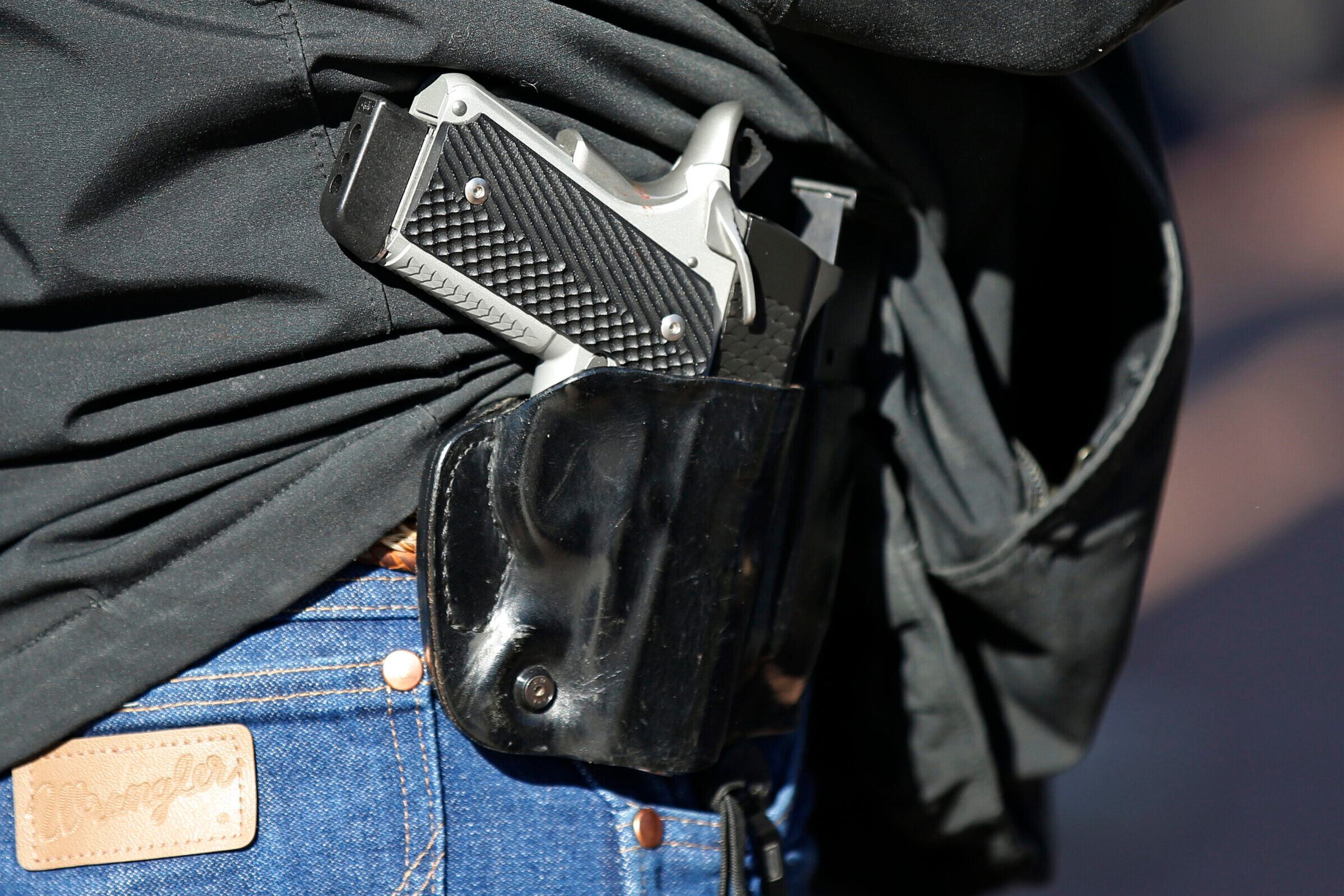State Rep. Shane Stringer (R-Citronelle) sponsored Alabama's constitutional carry bill that passed last year. A provision in the bill required those carrying concealed firearms without a permit to disclose that fact to law enforcement. Violations are punishable as misdemeanors, but there are no explicit penalties for doing so.
Critics of permit-less carry say this allows people to lie to law enforcement about having a firearm without consequences. There was a push to codify strict punishments, but Stringer argues they wouldn't make anyone safer.
"It doesn't matter if that was a law. That isn't going to stop a bad guy from saying there's not a gun," Stringer told 1819 News.
He further pointed out that even while Alabama required permits to carry, people could lie about not having a gun.
"As far as cops feeling unsafe, if cops don't treat every situation or every encounter as the person is armed, they probably don't need to be a cop," he outlined. "I've been a cop for 31 years, and you always assume that every transaction, every interaction that you have with somebody, that person is armed, you know, a bad guy is gonna lie."
According to Stringer, leaving the required permit system is not an extreme danger as it was not as safe or foolproof as many believed.
"The fact of the matter is, we've had pistol permits forever, and that $20 or $25 piece of plastic has never made a cop safe. I never pulled anybody over and said, 'Oh, they've got a pistol permit. I feel better.' The ATF did audits on the Alabama pistol permit system and showed that there were sheriffs out there issuing permits to convicted felons, not running the background checks. That's what cops should have been worried about and concerned about for safety," he explained.
Another issue ripe for exploitation was a lack of uniformity between permit cards.
"We had 67 counties with 67 different-looking permits, and officers didn't have a handbook to know what each county looked like. I could create a fake permit, and they would not know it," he said.
In addition, administrative limitations made it difficult to determine if a permit was legitimate or current.
"You could get convicted or arrested and get your permit pulled today. But if you still had the hard copy and I stopped you after hours, I would have no way of knowing if it was valid or had been revoked yet because there was no system in place that would allow you to run permits after hours," Stringer stated. "Now, there were a few larger departments where you could contact their dispatch to find out if a permit was revoked or not. But in most counties, you had to call Monday through Friday, eight to five, to find out. And most of those kinds of stops happen after hours or on weekends. So that didn't help anything."
The constitutional carry bill created the Prohibited Person Database to help ensure that only authorized individuals could carry.
"In Alabama, if a person is on that list and you stop them, they've got a gun, you've got probable cause to arrest them on a felony," he said. "Certain persons forbidden [to carry] versus a misdemeanor, no pistol permit. So, it's actually a better system."
According to Stringer, this system should result in more gun charges that stick, in contrast with the permit system.
"Mobile County averaged around 100 no pistol permit arrests a year up until the year we sponsored this legislation," he explained. "And then we had around 300 arrests, but the DA's said that most of those cases were a supplemental charge, where somebody was arrested on a warrant, they were searching the vehicle and found a gun, or somebody was arrested for drugs, and while searching the vehicle, they found a gun. Most of those were dismissed in court. The fact is the permits were just not a good tool anyway."
To connect with the story's author or comment, email gnicktreglia@gmail.com.
Don't miss out! Subscribe to our newsletter and get our top stories every weekday morning.










